Bluebeard (1944)
“She defiled the image I had created of her — and so, I killed her.”
|
Synopsis: |
|
Genres, Themes, Actors, and Directors:
Response to Peary’s Review: He notes that it provides John Carradine “his best lead performance and one of the few in which he doesn’t succumb to hamminess”; indeed, in his Alternate Oscars book Peary nominates Carradine as one of the Best Actors of the Year for this role. While I find the film visually impressive, I’m much less taken with its rather insipid storyline, which doesn’t reveal Bluebeard’s motivations until close to the end, and thus leaves us puzzled about why a seemingly likable puppeteer turns randomly into a murderer whenever he paints a beautiful woman. It’s nice to see Carradine given a leading role, and he’s suitably nuanced, but I much prefer him in his more memorable supporting roles — like Preacher Casy in The Grapes of Wrath (1940). Redeeming Qualities and Moments: Must See? Links: |
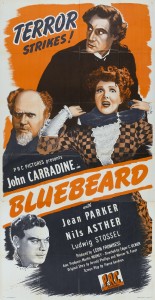
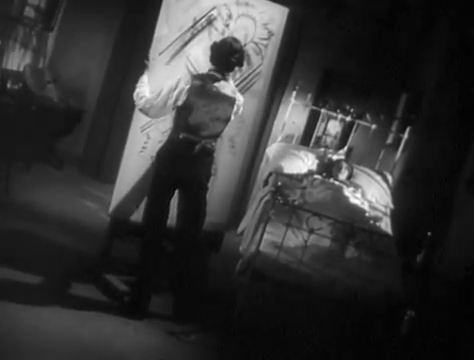
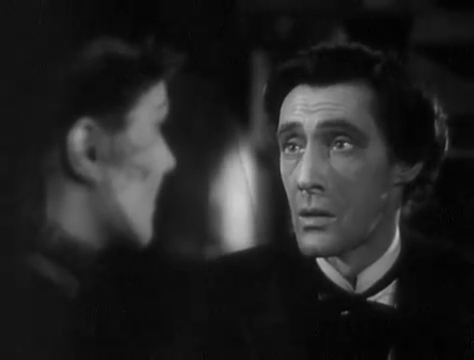
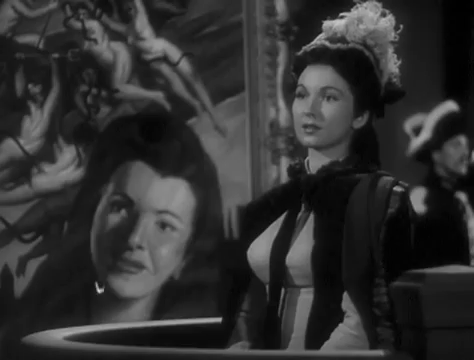


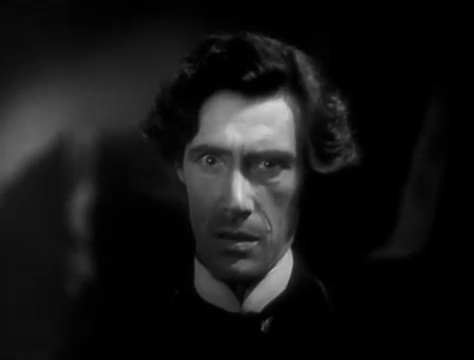
One thought on “Bluebeard (1944)”
Not must-see, and in overall agreement with the assessment. While I don’t find the storyline “insipid” necessarily, I do find it extremely rushed (at 70 minutes). It’s too compelling a story to see it given such facile treatment. Things happen too quickly, robbing the story of a beneficial build.
I’m also a little bothered by Carradine’s big speech at the end. The reason he gives for his transformation into a serial killer seems slight, sudden and not all that believable. …Though I’ll agree with Peary that it’s nice seeing Carradine in a rare leading role, even if (again) the shortness of the film gets in the way of his character development.
I was rather taken with Carradine’s co-star, Jean Parker. Although she was rather active on-screen in the ’30s and ’40s (including a few major credits like ‘Little Women’ and ‘Gabriel Over the White House’), it seems she then segued mostly into television. She has the look and personality of a Jean Arthur/Rita Hayworth hybrid.